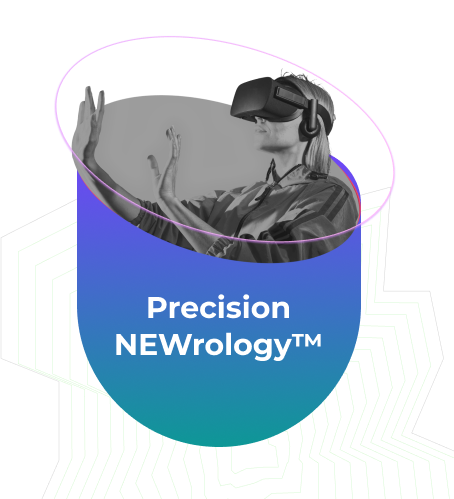
Understanding the Cognitive Impacts of Multiple Sclerosis
Approximately 2.8 million people around the world are currently living with multiple sclerosis (MS), yet there is still no known cure for the disease. One reason MS is so hard to pin down is that it manifests differently in every person, causing various combinations of symptoms in some and remaining “clinically silent” in others even as the disease worsens.
As with many other diseases that affect cognition, there is often a lag between when MS begins to develop and when it is diagnosed.
What Is Multiple Sclerosis?
MS is a disease of the central nervous system (CNS), which comprises the brain, spinal cord, and optic nerves. For reasons that are not yet understood, MS causes the immune system to attack the CNS, damaging the myelin sheath that protects the nerve fibers that enable communication between the CNS and the rest of the body. In advanced cases, the nerve fibers themselves become damaged.
Sites of demyelination and fiber damage are known as lesions, and if the damage becomes permanent, they turn into scar tissue, or “plaque.” MS progression is affected variously by the size, location, and number of these sites.
MS Disease Progression
The majority of MS cases are relapse remitting, which means that symptoms flare up for a period of time and then recede. A person with this form of MS may experience symptom-free periods of up to several years. Relapse-remitting MS can either remain episodic or evolve into a more serious, chronic condition known as secondary-progressive MS.
Symptoms of MS may include, but are not limited to:
- Bladder or bowel dysfunction
- Changes in sexual response
- Cognitive issues (e.g., difficulty learning or remembering information)
- Fatigue
- Difficulty walking
- Dizziness or vertigo
- Dysthesesia (feeling of being squeezed around the torso)
- Involuntary muscle spasms
- Loss of balance or coordination
- Mood swings or depression
- Numbness or tingling in parts of the body
- Pain or itching
- Slurred speech
- Tremors
- Weakness
- Visual impairment
How is MS Diagnosed?
There are currently no conclusive standalone tests that can diagnose MS. Instead, differential diagnosis—in which diseases with symptoms that resemble MS are ruled out—is typically pursued. Currently, MS diagnosis also requires evidence of damage to at least two parts of the CNS that occurred during different time periods (e.g., during two different relapses of relapse-remitting type).
Current diagnostic methods include:
- A thorough review of the patient’s medical history and a neurological exam
- Magnetic resonance imaging (MRI) to scan the CNS for MS lesions
- Lumbar puncture to test cerebrospinal fluid for proteins commonly associated with MS
- Blood tests to rule out other diseases with symptoms similar to MS
Frustratingly for researchers and those living with the disease alike, MS is often a moving target. Relapse-remitting MS in particular can be tricky to catch, with symptoms surfacing, receding, and changing over time. Repeat testing is often required to detect the presence of lesions or changes in their number, position, or size that can help doctors diagnose MS or pinpoint MS type.
New testing methods that can discover the presence of MS through a single procedure rather than through the process of elimination or repeat testing, are sorely needed.
Understanding MS-Related Cognitive Dysfunction
Cognitive changes are some of the first symptoms to develop in the early stages of MS, but their initial manifestations are often minor and therefore overlooked. While MS does not typically affect long-term memory, overall intellect, reading comprehension, or conversational skill, several other cognitive functions may be impaired. Common cognitive effects of MS include:
- Brain fog, or a general feeling of confusion, forgetfulness, or “tuning out”
- Difficulty finding words
- Difficulty paying attention (especially to more than one thing at once)
- Executive function challenges (e.g., prioritizing tasks)
- Limited spatial awareness
- Short-term memory problems
Cognitive changes typically develop gradually, however, so they are often undetected until MS has progressed significantly. A person may have few or no physical symptoms, yet under the surface, their cognitive symptoms may have advanced markedly. As with many other diseases that impact cognition, early diagnosis is critical to improving an MS prognosis. But the lack of preventive, affordable cognitive health screenings in our present healthcare model prevents us from harnessing valuable data that could change the lives of those living with the disease. ViewMind is working to change all that.
Plumbing Cognitive Impacts for Clues
To date, there is no cure for MS. However, early detection and intervention can vastly improve disease prognosis, with many medications and treatments now available that can halt or slow the progression of the disease in its early stages. Thus at ViewMind, we’ve turned the lens of our novel eye-tracking technology on MS to see what clues to its pathology we might find.
In a recent study presented at ECTRIMS2022 in Amsterdam, 40 MS patients, completed the ViewMind Atlas 15-minute assessment, using virtual reality headsets in a two-phase test related to the sequencing of visual stimuli. As the patients performed the tasks, we monitored their eye movement patterns, discovering key differences between the individuals with relapse-remitting MS at different stages.
Combining our eye-tracking analysis with the visual sequencing test has allowed ViewMind to enrich the identification of clinical features in MS, unveil novel features of MS unknown to date, and provide more sensitive tools to monitor and trace motor and cognitive aspects of patients at risk of progression from relapse-remitting MS to secondary-progressive MS.
By isolating the individual eye-movement patterns associated with these two MS types, we have created a new window in which to view the effects of various disease interventions and hopefully reduce the number of progressive cases. With our affordable, accessible, and highly scalable assessment, we are working to make cognitive health care and the opportunity for early, definitive diagnosis available to all.
Related Posts

With Digital Health, the Future Is Now
Digital biomarkers: Charting the unknown With Digital Health, the Future Is Now Amid the often dire news circulating this year, several outlets added a bit…

The Race against Long COVID
Apart from the horrifying statistic of more than six million deaths from COVID-19 worldwide, one of the most troubling outcomes of the disease has been…

How do we know when mild cognitive impairment (MCI) will become Alzheimer’s?
Cognitive impairment is a multifaceted ailment that has long bedevilled researchers due to the unpredictable nature of its progression. Some individuals with mild cognitive impairment…


